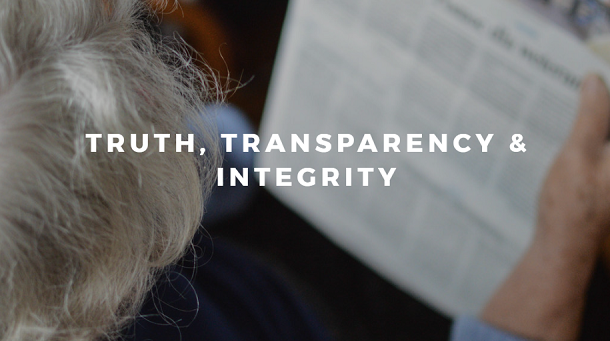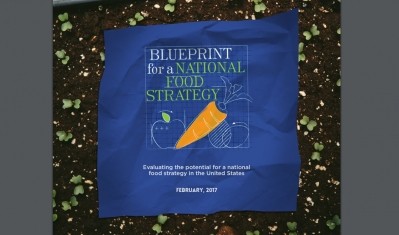KIND CEO launches Feed the Truth to shine light on food policy research funding & influence

Earlier this month, Daniel Lubetzky donated $5 million, with the promise to donate $20 million more over the next 10 years, to create an independent organization – Feed The Truth – with the goal of shining a light on the source of food policy research funds and what, if anything, donors have to gain or lose from the conclusions.
“In establishing Feed the Truth, my intent is to elevate reputable science, bolster the voices of the nutrition community, and improve the guidance and information offered to Americans,” Lubetzky said in a written statement.
He added, “As a business owner, I understand the importance of prioritizing your bottom line, but it’s equally as important to consider how you can succeed while also thinking about the long-term impact on the community.”
Under the current system, however, he says he worries that the more emphasis is placed on the first priority rather than the second.
Many public health advocates share his fear that the current lack of transparency into the involvement of industry in how studies are selected and structured creates an environment in which they can, and do, discretely influence or hide unflattering results to bolster business.
For example, a recent JAMA Internal Medicine report found that the Sugar Research Foundation systematically funded and help shape a literature review published in the New England Journal of Medicine that downplayed evidence that sucrose consumption contributed to coronary heart disease, and instead focused the blame on fat and cholesterol. http://jamanetwork.com/journals/jamainternalmedicine/article-abstract/2548255
While there is nothing inherently wrong with industry funded research, problems arise when industry’s role is not disclosed and that research is then used to shape public health policy, as in the sugar example.
This example also likely contributed to the government’s long-standing view that fat – regardless of its source or type – is unhealthy. This blanket guidance ultimately tripped up KIND when FDA sent it a warning letter for uses the term “healthy” on its products, even though they were high in fat from nuts. The company later filed a citizen petition that prompted the agency to reevaluate the relationship between fat and “healthy” claims.
Problems with industry-funded research also arise when studies return findings that are negative for benefactors and donors are in a position to hide the results or pull the plug on the research before firm conclusions can be made.
The extent of this risk is partially revealed in analysis presented by food policy expert Marion Nestle on her blog Food Politics. From March 2015 to March 2016, Nestle kept a running tally of the industry funded studies that she either ran across in her reading or were sent to her by readers and which reported unfavorable results. Out of 168 industry-funded studies, she found 156 supported the sponsor’s interests and only 12 industry-funded studies shared unfavorable outcomes.
Lubetzky steps aside
To protect Feed the Truth from inadvertently falling into these same conflicts-of-interest as an industry funded organization, Lubetzky promises to remove himself from all activities and oversight of the organization – instead handing over the reins to a team of three unaffiliated public health advocates to nominate Feed the Truth’s board of directors.
The trio includes Nestle along with Michael Jacobson, co-founder and president of the Center for Science in the Public Interest, and Deb Eschmeyer, former executive director of Let’s Move! and senior policy advisor for nutrition policy at The White House.
Nestle told FoodNavigator-USA that she and the others have not yet set criteria for selecting board members, but that she expects the initiative will require “a strong, independent board, with members known for their integrity.”
She added that she already has received several inquiries from people who would like to participate or be involved, signaling that “others are also committed to the need for this entity.”
For her part, Nestle says she thinks the initiative is “exciting because it is difficult to find funding for research initiatives having to do with conflict of interest in research funded by food companies and for identifying the ways in which food companies are attempting to counter public health measures.”
She adds that she hopes the board and executive director it appoints will encourage this type of research. KIND also notes potential activities could include grants for investigative journalism, consumer education campaigns and educational briefings to policymakers and influencers.









